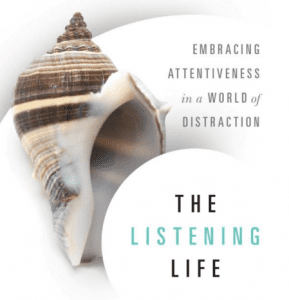 This is a dialogical review of Scharen, Christian. Broken Hallelujahs: Why Popular Music Matters to Those Seeking God. Grand Rapids: Brazos, 2011. Reviewed by Matt Edwards the Ministries Director at Believers Fellowship in Gig Harbor, Washington, and by Walker Sherman the Worship Director at the same church. Matt summarized the argument of the book, and then we dialogued about the most impressive points. It’s a different format, but I think it works! I have a question for your readers in bold at the end. Matt is a graduate of Dallas Theological Seminary (ThM 2005) and Cedarville University (BA 2000), and Walker is a graduate of The Baptist College of Florida (BA 2010).
This is a dialogical review of Scharen, Christian. Broken Hallelujahs: Why Popular Music Matters to Those Seeking God. Grand Rapids: Brazos, 2011. Reviewed by Matt Edwards the Ministries Director at Believers Fellowship in Gig Harbor, Washington, and by Walker Sherman the Worship Director at the same church. Matt summarized the argument of the book, and then we dialogued about the most impressive points. It’s a different format, but I think it works! I have a question for your readers in bold at the end. Matt is a graduate of Dallas Theological Seminary (ThM 2005) and Cedarville University (BA 2000), and Walker is a graduate of The Baptist College of Florida (BA 2010).
In Broken Hallelujahs, Christian Scharen urges us to recapture a robust Christian imagination by changing the way we evaluate music. Popularly, Christians focus on the content of songs, looking for Christian themes and counting references to sex, drugs, or violence. Instead, Scharen suggests we know with music rather than knowing about it. He writes, “even if something in pop culture is so twisted that its portrayal of horror only offers a broken cry, that cry is worth hearing. Why? Because Christ is in that cry, God listens to that cry, and we Christians as the body of Christ ought to hear it too.” (Christian Scharen, Broken Hallelujahs: Why Popular Culture Matters to Those Seeking God [Grand Rapids: Brazos, 2011], 142.) Scharen’s book is well-written, thoughtful, clear, and provocative. It offers a needed corrective.
What makes a song “true”? Is there an overemphasis on glory in popular Christian music? Does this make it “eschatologically dishonest”? How should Christians respond to or evaluate music?
In the opening chapter, Scharen contrasts approaches to music that flow from a theology of glory and a theology of the cross. A theology of glory is optimistic toward human ability to obey God. Out of this comes an approach to music that fears anything “secular.” Scharen writes that in this theology, “If you admit doubt, your faith is not strong enough, and you are in spiritual peril” (21). A theology of the cross, on the other hand, emphasizes the sinfulness of humanity and insists that our relationship with God comes solely from the cross. From this theology flows an approach to music that hesitates to distinguish the “sacred” from the “secular” and allows God to be glorified even in broken humanity. About U2, Scharen asks, “Do we proclaim God only when we sing about divine love in the songs ‘Gloria’ or ‘Grace,’ or do we proclaim God also when we sing about human love in the songs ‘Desire’ and ‘Discothèque’?” (22)
In chapter 2, Scharen tells the story of Leonard Cohen, focusing on the spirituality that led to his writing the oft-covered “Hallelujah.” Though a “spiritual” man involved in Judaism and Buddhism, Cohen is not a Christian. In Cohen, Scharen sees a man longing for the divine and writing from his own brokenness. In the fifth verse of “Hallelujah,” Cohen sings, “Maybe there’s a God above / But all I’ve ever learned from love / Was how to shoot at someone who outdrew you / It’s not a cry you can hear at night / It’s not somebody who has seen the light / It’s a cold and it’s a broken hallelujah.” About the song, Cohen wrote “I wanted to write something in the tradition of the hallelujah choruses but from a different point of view . . . It’s the notion that there is no perfection—that this is a broken world and we live with broken hearts and broken lives but still there is no alibi for anything. On the contrary, you have to stand up and say hallelujah under those circumstances.” (Robert Hilburn, “A Master’s Reflections on His Music,” Los Angeles Times, Spetember 24, 1995, quoted in Scharen 46).
Having demonstrated the divine in the work of Leonard Cohen, Scharen shows “Why God Loves the Blues” in chapter 3. In it, he shows that the blues came out of the same environment as many of the African American spirituals. Instead of labeling it “The Devil’s Music,” Scharen prefers calling the blues “secular spirituals.” He writes, “The key to this shared arc of meaning between the blues and spirituals is the struggle to speak the truth of life’s loves and sorrows. Only through the delight of desire and love do we find our hearts torn apart by betrayal. This range of life’s experience set before the hearer, and before the Lord, draws powerfully on the blues.” (73)
In chapter 4, Scharen gives theological justification for finding God in Leonard Cohen and in the blues. God is the God who responds to cries. From Israel’s cry in Egypt, to Isaiah’s challenge to cry to God for help, to Jesus’s own loud cry’ from the cross, God is a God who responds to cries. Scharen writes, “Jesus’s ‘loud cry’ of abandonment signals a divine ‘no’ to the forces of sin, evil, and violence that support their powerful reign in this life. God hears that cry and in the mystery of God’s own life is ‘within’ that cry. Therefore in raising Jesus from the dead, God took that brokenness and death into God’s self, absorbed it’s power, and transformed its ‘no’ to a cosmic and definitive ‘yes.’ . . . More than that, its cosmic character picks up all cries, from the cries of the exodus and exile to those of the psalmist and the prophets, from the moans of the blues singers and the broken ballads of the folksinger to the broken lives lived by you and me.” (94)
Having demonstrated a theology that finds God in the blues, Scharen transitions to describe how music is often evaluated by Christians. His test case is Focus on the Family’s review of Kanye West’s Grammy-winning 2004 song “Jesus Walks” and the accompanying album, The College Dropout. The reviewer, Adam Holz, notes all of the instances of profanity and objectionable material (along with the positive messages), and concludes “West does his best to discredit education while exalting illegal, immoral behavior. Despite moments of social and spiritual conscience, The College Dropout should be expelled.” (www.pluggedin.com/music/albums/2004/kanyewest-thecollegedropout.aspx, quoted in Scharen 107) Scharen suggests that this kind of review stems from a theology of glory. He characterizes this theology, “Once we’ve decided to give our life to Jesus and seek to live as his disciple, we are tentatively safe from the threat of death and damnation, but temptation lurks around every corner, and we must choose wisely in order to keep on the right side of the line between saint and sinner, between the church and the world lost in sin. . . . The threat is, however, that if I do not choose purity and holiness in my actions, I fall from God’s care and safekeeping into the darkness of a world that has lost its way.” (110)
Scharen follows his critique of Focus on the Family’s approach to music with a proposal for a better way. He draws on C.S. Lewis’s distinction between two types of knowing based on the French savoir and connaître. To Lewis, savoir refers to knowing about something, and connaître refers to knowing with something. Focus on the Family’s judgments on Kanye West are based on savoir knowledge—how much profanity is in the album and what Christian or non-Christian themes are present in the music. Instead, Scharen argues for a connaître knowledge of West through the album—what do we learn about Kanye West through The College Dropout? What is his cry in this album? What is his broken hallelujah? What kind of people do we become by looking at the world through Kanye West’s eyes? Scharen does not advocate unconditional acceptance of music, but rather seeking to understand music before we judge it. He writes, “I bring my sense of Christian values and the wisdom of theology and Scripture to my hearing, moving to meet the song’s identity as I begin to understand it with my own identity in Christ. While I do not have a prescribed theory of what sorts of songs are ‘good’ or ‘acceptable’ (à la checklist Christianity), I do have basic cultural associations that allow the songs to have meaning for me.” (121)
Scharen concludes his book by demonstrating his method on the bands Sigor Rós and Arcade Fire. Scharen praises Sigor Rós for their ability to capture the beauty and majesty of God, even when they do so through a made up, nonsensical language they call “Hopelandic.” About Arcade Fire he writes, “Arcade Fire, then, repays the practice of surrender by opening up avenues of reflection on some of the issues that matter most in life—who we serve with our lives, how we live, love, and create with the gifts that have been given, and what is worth fighting for and against.” (155)
Matt: The best part of Scharen’s book to me was his discussion of the theology of glory and the theology of the cross. He shows that brokenness can be “true.” I love that. I am disappointed in most Christian music because I find that too often it jumps to theologically correct answers without adequately exploring life’s problems (there are notable exceptions). We live in a tension between the “already” and the “not yet,” but almost all Christian songs are about the “already.” Where are the Christian songs about failures (that don’t have that last verse reminding us that Jesus died and so it’s going to be okay)? I don’t find this music to be “real.” I don’t believe it because the answers seem trite—either the artist hasn’t really dealt with the problem or they are lying about their confidence in the solution. There is no tension, only glory.
Walker: I think honesty makes art worthwhile. I am most willing to lie about two things: the things I am ashamed of and the things I wish were true (but aren’t). Sometimes theology doesn’t provide the answers I am looking for, at least not according to my timeline. People in pain just want the pain to end; they don’t want to hear that Jesus will put pain to an end when his kingdom comes in its fullness. It’s more pleasing to sing (and believe) that Jesus will give us what we want than it is to sing of his presence in the pain. I enjoyed how the book spoke of man’s “cry” in the midst of his personal pain and how man’s cry connects with the cry of our Lord from the cross.
Matt: Good points. An already/not yet theology of suffering is harder to accept than a theology of glory. When we are in pain, we want to hear that God is going to make it better now, not that He hurts with us (but has promised to one day make it all right). But it breaks down for me when God doesn’t act like we want Him to and we are left with the reality of the “not yet.” I like how you said that honesty is crucial in art. I feel that too much Christian art is eschatologically dishonest .
Walker: I particularly enjoyed the section featuring C.S. Lewis’ perspective on “receiving” art. Art must be given a real chance to speak before it is rejected as bad or insignificant. The selfish person can never truly receive art because he desires mere consumption. He wants to use it to promulgate his own appetites and persuasions. Like a friend who “listens” only long enough to think of what to say next, the patron with a checklist methodology listens to music only long enough to run it through his theological algorithm of the good, bad, and “helpful.” He is more concerned with furthering his point of view than with knowing another human more fully. Art must be listened to with the kind of heart that desires to know more of it. Scharen calls this “knowing with” art and proposes that this kind of listening enables us to see things about ourselves that we didn’t know were there. “He who seeks to save his life will lose it yet he who loses his life will find it,” borrows Scharen from the wisdom of Christ. Receiving art is receiving the witness of a person and considering how their voice might speak wisdom in one’s own life. Can someone learn from another’s story without demanding that story be his own?
These ideas weave together for me in Gotye’s song “Somebody That I Used to Know.” This song will likely be heralded as the defining pop song of 2012, and yet stylistically there is not much “pop” about it. I believe this song has been so successful because it is not only honest, but it causes people to live more honestly. “Somebody That I Used to Know” creatively retells the story of a break up from two points of view. As the story unfolds and reaches its climax (especially in the video), the listener realizes the ease with which one can become self-deceived when confused by hurt and the passing of time. Perhaps in the end the narrator addresses himself as someone he used to know. This song is more than a melody over crafted words, it’s a song that reads you and demands a response. The third time I listened to the song I thought through a past relationship and realized I had allowed “feeling rough” to demonize the other person and conveniently overlook “all the times I screwed her over all the time having her believe it was something she had done.” I don’t want to live that way, and because of “Somebody That I Used to Know” I don’t have to.
Matt: I think “Somebody That I Used to Know” is a great example of the kind of song that Scharen would embrace as “true,” but that a lot of evangelicals would reject as “secular.” I loved the song because the man’s response to the woman is true to the way disagreements and break ups play out in real life (even in Christian life). The man accuses the woman of being heartless, the woman responds by accusing him of manipulation, and the man responds, “But you didn’t have to stoop so low / Have your friends collect your records and then change your number.” It’s a rehash of his first argument, only adding “your behavior was worse.” When he says, “I don’t even need your love,” we don’t believe him, but then we are confronted with our own times of self-deception.
The tragedy in evangelicalism is that too many of us will hear that song and think, “Christians don’t have fights like that,” “They just need to learn to forgive,” or “That’s why I kissed dating good-bye.” But Christian couples can and do have breakups like that. It’s part of living in a fallen world and it makes us long for glory. Does the evangelical imagination have room for that kind of art?
What makes a song “true”? Is there an overemphasis on glory in popular Christian music? Does this make it “eschatologically dishonest”? How should Christians respond to or evaluate music?











